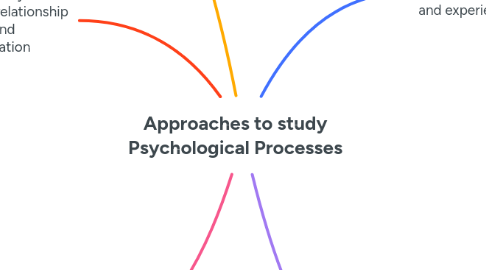Approaches to study Psychological Processes
저자: Charu Joshi


1. Biological Approach studies biological structures and their role in regulating emotions, behaviour, mental processes.
1.1. brain,
1.2. genes,
1.3. hormones,
1.4. endocrine system
1.5. and neurotransmitter
2. Behaviorist Approach: by JB Watson, studies the relationship between behaviour and environmental stimulation
2.1. Explicit, objective and overt behaviour
2.2. Association between stimulus and response
2.3. Behaviour can be shaped by manipulating this association
3. Cognitive Approach: assumes that behaviour and mental processes is influenced by how we process the information in the world
3.1. information processing capacity of the individual
3.2. Higher mental processes
3.2.1. perception,
3.2.2. remembering,
3.2.3. thinking,
3.2.4. language,
3.2.5. reasoning,
3.2.6. problem solving
3.2.7. decision making
3.3. Computational model: humans process information just like a computer
4. Psychoanalytic Approach of Sigmund Freud. Human behaviour and experiences are influenced by
4.1. Unconscious libidinal energy
4.2. layers of consciousness
4.2.1. conscious,
4.2.2. preconscious, and
4.2.3. Unconscious
4.3. unconscious motivation
4.4. Early childhood experiences
4.5. Methods
4.5.1. Dreams
4.5.2. slips of the tongue,
4.5.3. Neuroses,
4.5.4. psychoses,
4.5.5. work of art, and
4.5.6. rituals
